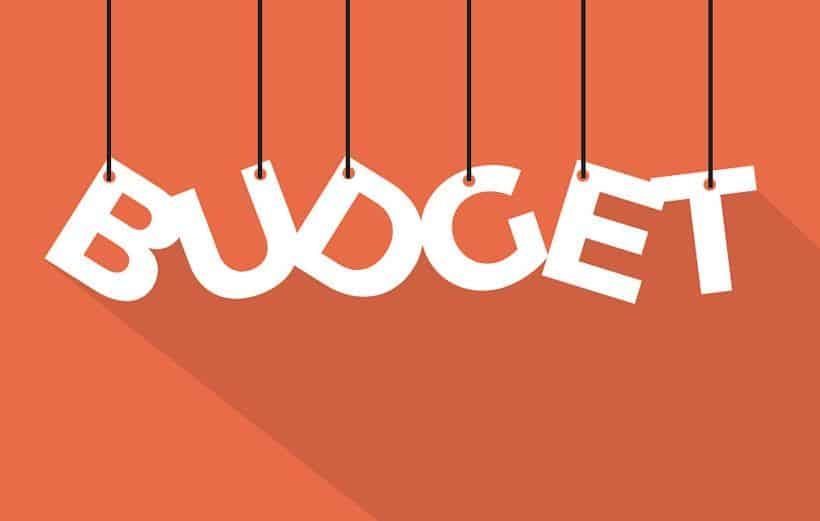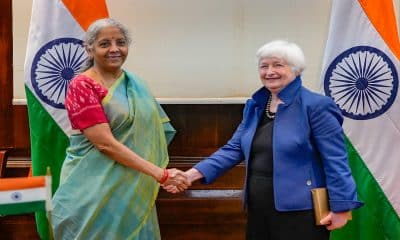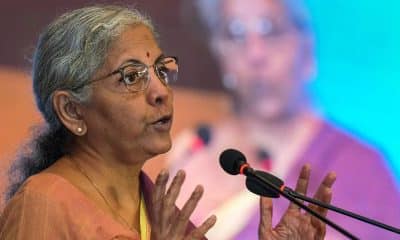Business
With tax rebates and welfare sops, Union Budget appeases middle class
Union Budget 2023 presented by Finance Minister Nirmala Sitharaman aims to support the nation’s middle class by tax relaxations and rebates, apart from strengthening the government’s focus on welfare through benefits for farmers, tribals and women. In this tax regime, people with annual income up to Rs 7 lakh don’t have to pay any tax.
The budget also reduced expenditure for the rural job programme and subsidies in order to meet fiscal discipline goals while attempting to raise consumption and increase infrastructure expenditures to support growth and job creation.
The ‘new tax system” exemption cap has been raised by Rs 50,000 to Rs 3 lakh. To make the new tax system more appealing, tax rebates have also been enhanced and tax slabs have been adjusted.
Finance Minister Nirmala Sitharaman also announced reductions in the Basic Customs Duty (BCD) on the import of the components for mobile phones and television sets made in India, but smokers would pay more due to the government’s higher taxation. Fully imported automobiles, including electric vehicles, as well as those built in India using imported components, would also increase in price.
Additionally, Sitharaman declared that the Center will give state governments one additional year of interest-free loans with terms of 50 years. She added that the increased expenditure of Rs. 10 lakh crore is for infrastructure development. She stated that the recently established infrastructure finance secretariat will help to attract more private investment when presenting the Budget for 2023–2024.
Incentives were also introduced by the Union Budget to support startups and AI education in India. A proposal to extend the benefit of carrying forward losses for new firms for an extra 10 years was included in the budget. The government also aims to make TDS and taxation of net wins available at the moment of withdrawal or at the end of the fiscal year for online games.
“I propose to extend the date of incorporation for income tax benefits to startups from March 31, 2023, to March 31, 2024. I further propose to provide the benefit of carry forward of losses on change of shareholding of startups from seven years of incorporation to ten years,” Sitharaman said in her speech in Lok Sabha.
Additionally, three centres of excellence for artificial intelligence will be established at significant educational institutions, together with 100 labs in engineering colleges, for the development of applications using 5G services. In addition, the finance minister unveiled a revised loan guarantee programme for MSMEs with an investment of Rs 9,000 crore, which will go into effect on April 1st, 2023.
To boost domestic tourism, Sitharaman announced that the Center would introduce the “Dekho Apna Desh” campaign. The National Financial Information Registry will also be established by the government to promote financial stability and an efficient flow of credit. She also disclosed that financial sector regulators would be required to conduct a thorough assessment of current laws.
Aatmanirbhar clean plant programme, worth Rs 2,200 crore, would be introduced by the government. In order to support agri-startups in rural areas, an agriculture accelerator fund will also be established. She continued by saying that the government would use a cluster-based and value-chain approach to increase the output of extra long staple cotton.
Sitharaman also announced that The Indian Institute of Millet Research based in Hyderabad will get a facelift. It will be supported as ‘Centre of Excellence’ for sharing best practices, research and technologies at the international level.
She added that the government will also set up a single window system for registrations and approvals in IFSC Gift City and that an integrated IT platform would be developed for reclaiming unclaimed profits and shares. For a quicker response when businesses submit forms under the Companies Act, a central processing centre will also be established. Mahila Samman Saving Certificates, a one-time new small saving programme, will be made available for two years up till 2025.










































